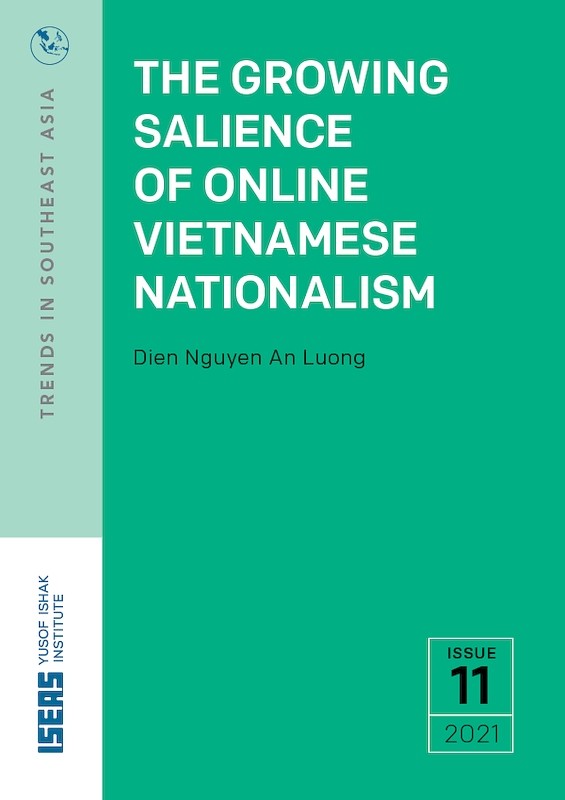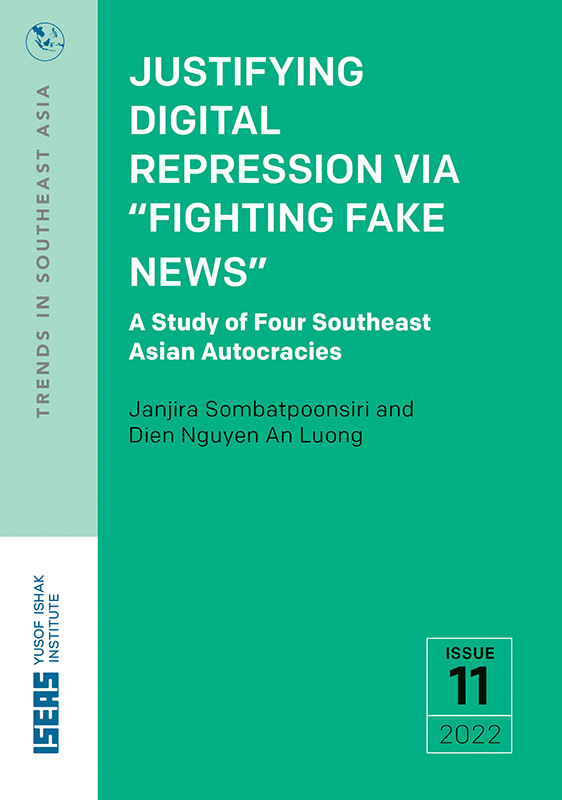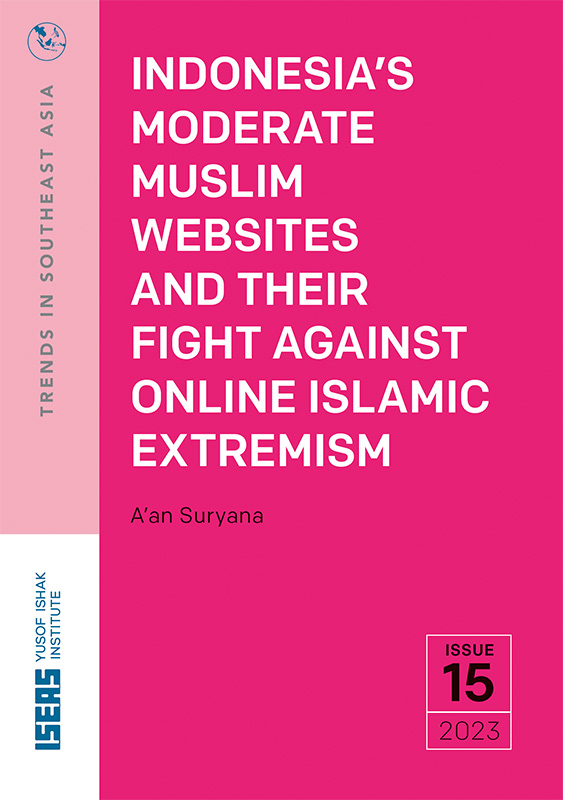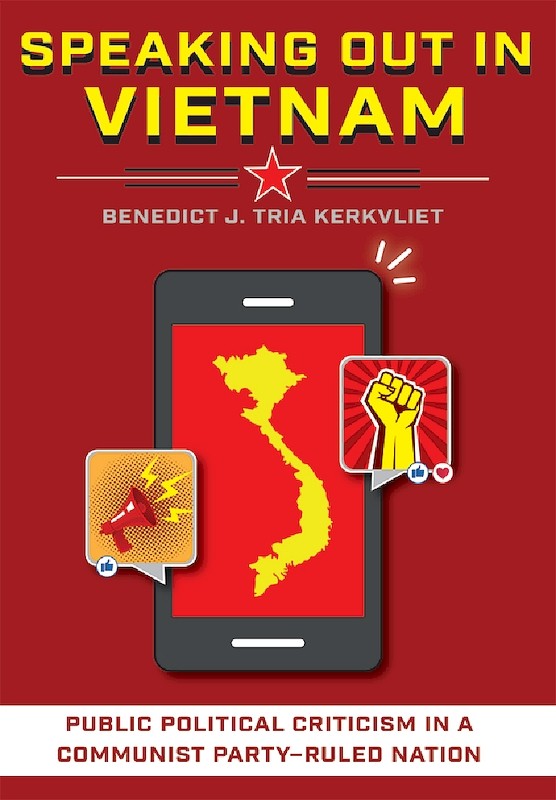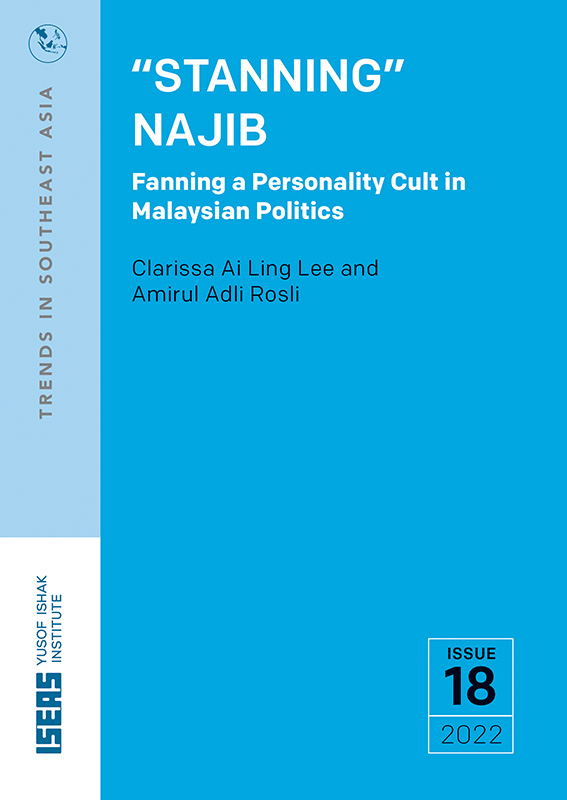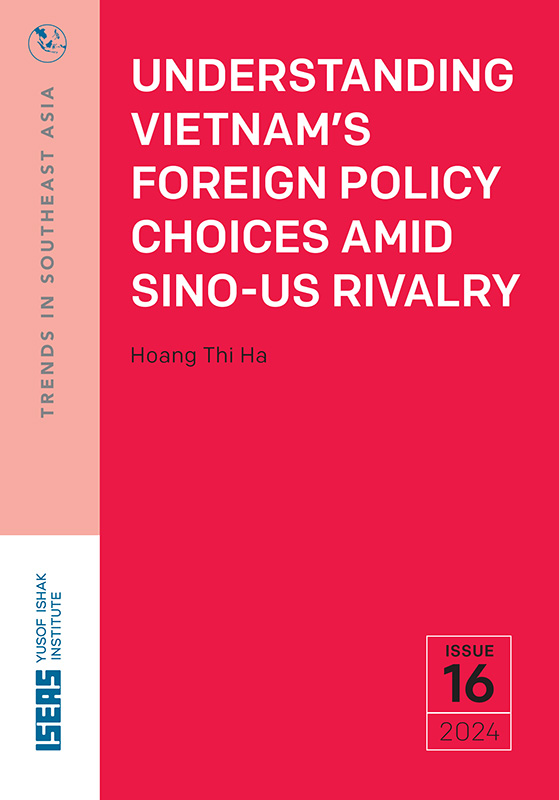A Study of Vietnam’s Control over Online Anti-state Content
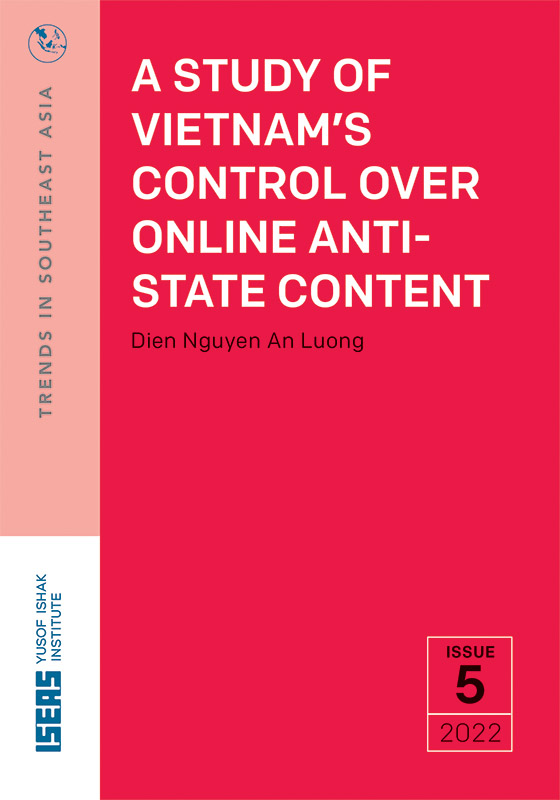
Dien Nguyen An Luong, author
Date of publication:
2022
Publisher:
ISEAS – Yusof Ishak Institute
Number of pages:
27
Code:
TRS5/22
Soft Cover
ISBN: 9789815011432
About the publication
Over the past two decades, the fixation on anti-state content has shaped the way Vietnamese authorities deployed various censorship strategies to achieve the dual goals of creating a superficial openness while maintaining a tight grip on online discourses. These considerations dictated how several regulations on Internet controls were formulated and enforced.
Vietnamese censors also selectively borrowed from China’s online censorship playbook, a key tenet of which is the fear-based approach. The modus operandi for the authorities is to first harp on what they perceive as online foreign and domestic threats to Vietnam’s social stability. Then those threats are exhaustively used to enforce tougher measures that are akin to those implemented in China.
But unlike China, Vietnam has not afforded to ban Western social media platforms altogether. Realizing that they would be better off exploiting social media for their own gains, Vietnamese authorities have sought to co-opt and utilize it to curb anti-state content on the Internet. The lure of the Vietnamese market has also emboldened Facebook and Google’s YouTube to consider it fit to acquiesce to state censorship demands.
The crackdown on anti-state content and fear-based censorship are likely to continue shaping Vietnam’s Internet controls, at least in the foreseeable future. The question is how both Internet users and the authorities will make the most of their unlikely—and fickle—alliance with social media to fulfil their agendas.
Contents
-
A Study of Vietnam’s Control over Online Anti-state Content
[Whole Publication, ISBN: 9789815011449], by Dien Nguyen An Luong, author

